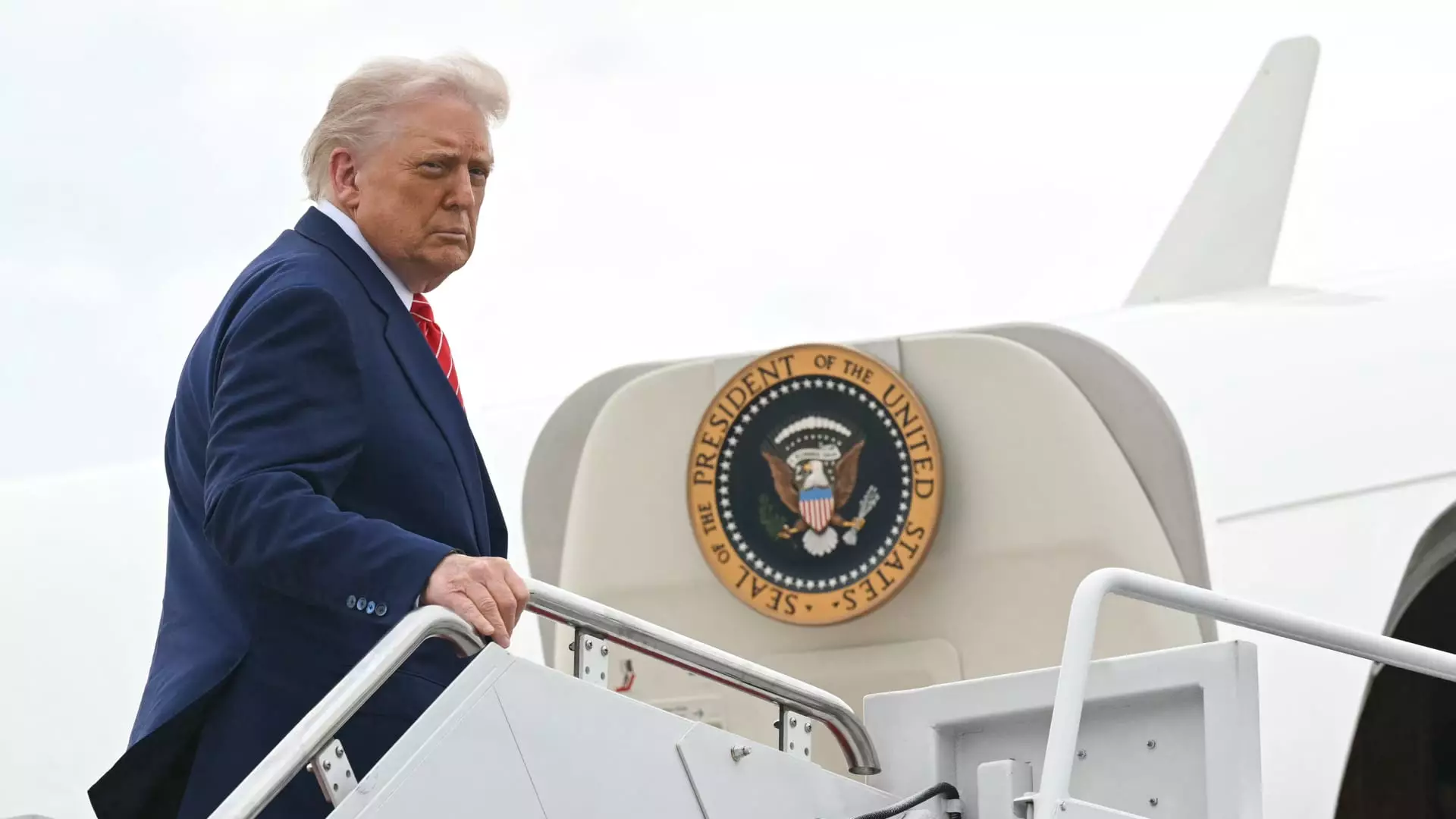Just as waves crash against the shore, the tumult surrounding President Donald Trump’s tariffs has shown no sign of subsiding. At the crux of the legal turmoil is the President’s decision to impose sweeping tariffs, a move aggressively defended by his administration, even in light of judicial pushback. The recent ruling from the U.S. Court of International Trade that deemed Trump’s tariffs as an overreach of presidential authority has reignited fears about the very foundation of his economic agenda. As a center-wing liberal, I find this relentless push for tariffs troubling—an initiative that could blind us to the complexities of the global trading system.
Commerce Secretary Howard Lutnick’s declaration, “Rest assured, tariffs are not going away,” shines a spotlight on the administration’s unmistakable bravado, but it also raises questions about their long-term viability. Such unwavering confidence can appear almost reckless, especially when considering that these tariffs are not just a law; they are an embodiment of a disruptive ideology that threatens to unravel decades of meticulously constructed trade relations.
The Economic Implications
Tariffs, positioned as a remedy for America’s persistent trade deficits, come with severe economic ramifications that are often glossed over by the administration. Kevin Hassett, Director of the National Economic Council, maintains that if blockers arise, “we’ll have other alternatives,” yet he offers no clear path of action. This vagueness only underscores the inherent risks of a haphazard economic strategy. Tariffs aren’t merely tools of trade—they can instigate widespread inflation, harm consumers, and erode the foundational fabric of the economy.
In the realm of international trade, competitive tariffs can spark retaliation from trading partners. Trump’s warnings that a court ruling against his tariffs would lead to “the economic ruination of the United States” paints a dystopian picture supported by fear rather than sound reasoning. This circumvents a crucial aspect of economics: collaboration. Trade is rarely a zero-sum game; it thrives on mutual benefit, and throwing up walls invites other nations to do the same, ultimately isolating America on the global stage.
Judicial Precedents and Presidential Authority
The idea that a legal challenge could ultimately ascend to the Supreme Court is daunting, and the implications could be far-reaching. Historically, presidential powers regarding trade have been expansive, but they are not infinite. The ruling hinged on the interpretation of the International Emergency Economic Powers Act (IEEPA), serving as a stark reminder that checks and balances remain intrinsic to American governance. The notion that courts could restrict executive authority may seem destabilizing, but perhaps that level of accountability is precisely what our political landscape requires—especially under an administration that appears to prioritize bravado over empirical negotiation tactics.
Moreover, the confidence articulated by Trump’s advisors reveals a curious detachment from reality. It evokes a sense of blind optimism that fails to recognize the growing complexity of jurisprudence surrounding trade policies. While political theories often preach the efficacy of strong leadership, it must be coupled with intelligent, informed decision-making rather than obstinate adherence to flawed strategies.
A Broken System of Negotiation
As I ponder over these developments, one cannot help but feel that America’s current trade mechanisms are fundamentally flawed. Trump’s insistence on tariffs aims to position the U.S. as an uncompromising force in negotiations. However, this strategy may backfire dramatically. Trade should be synonymous with negotiation, not antagonism; this stark deviation from conventional diplomacy can set a precarious precedent for future administrations.
Rather than relying on a heavy-handed approach, a more diplomatic lens may yield fruitful, lasting agreements that can elevate the U.S. economy without sacrificing our purchasing power or international relationships. The administration’s discourse around tariffs illustrates an urgent need not for economic warfare but for astute strategy rooted in cooperative principles.
By embracing a more nuanced approach to international trade—one that emphasizes dialogue over division—we may just find a path that not only protects American interests but also fosters global cooperation. This requires a sincere commitment to understanding economic complexities, a sharp deviation from the simplistic, combative rhetoric that has dominated the landscape thus far.


Leave a Reply